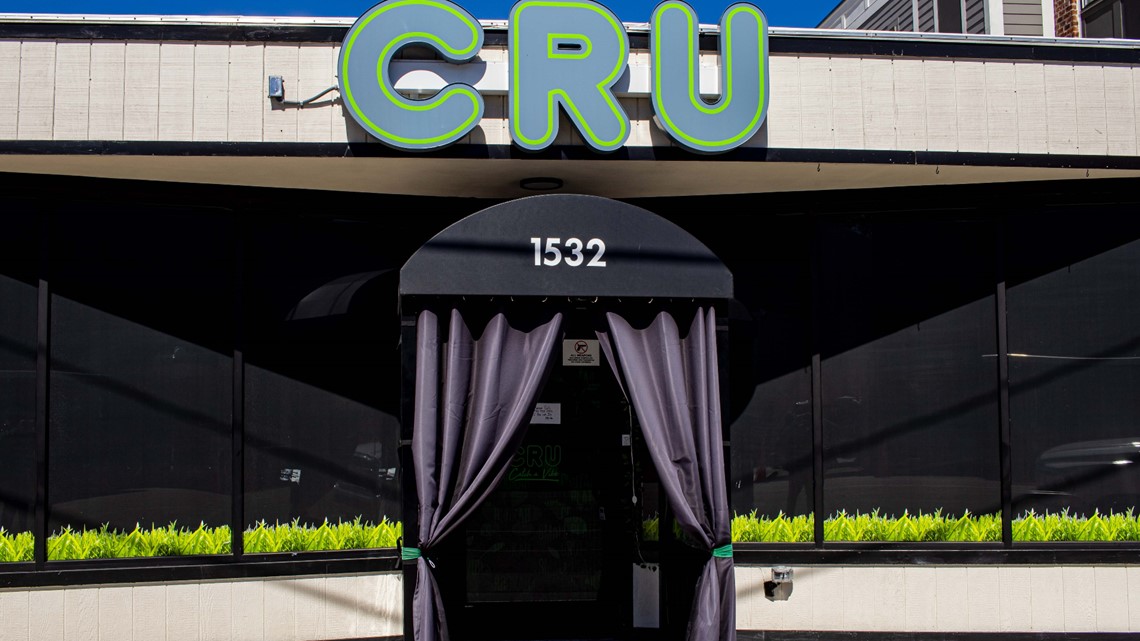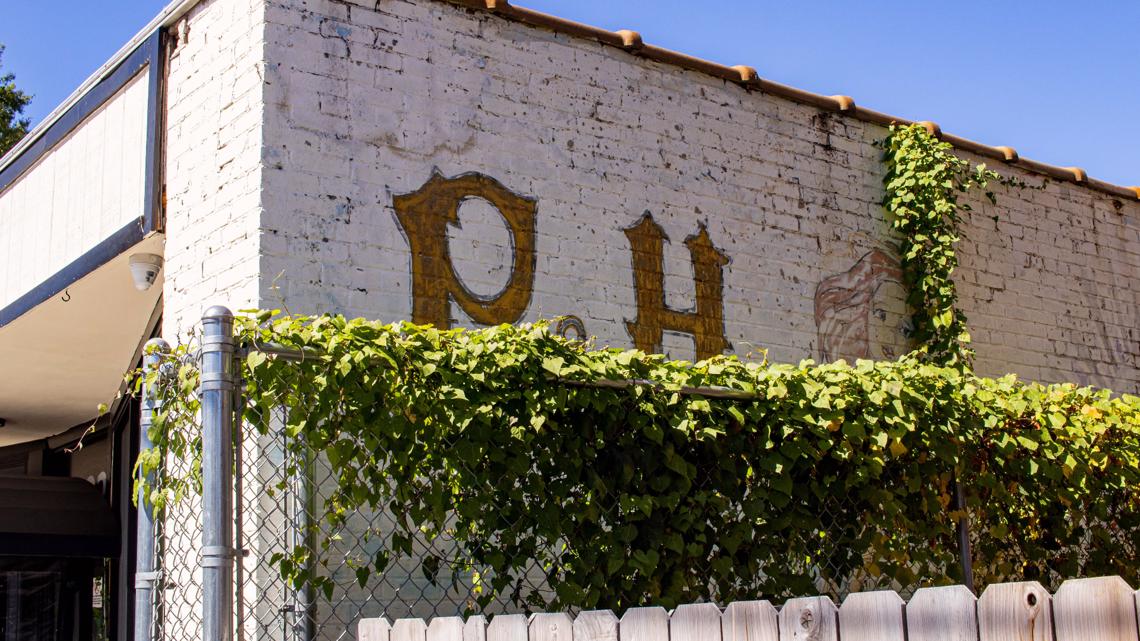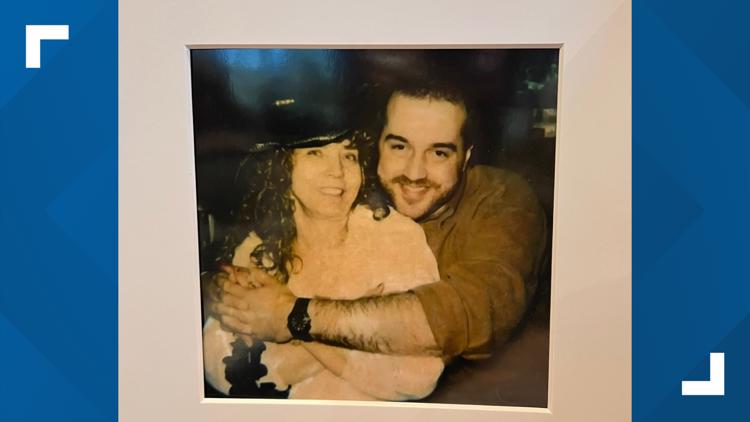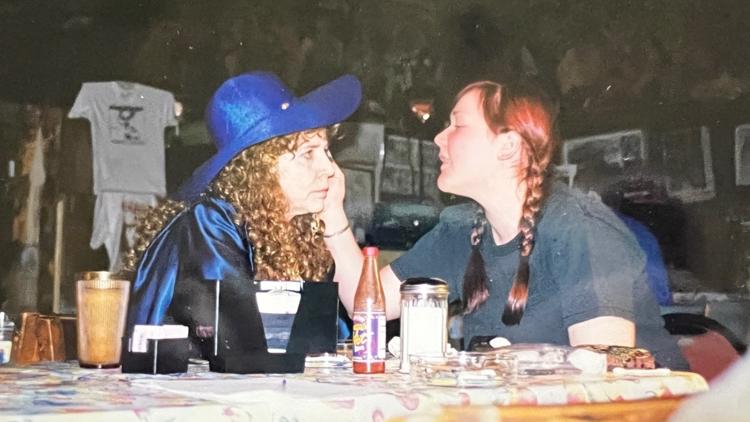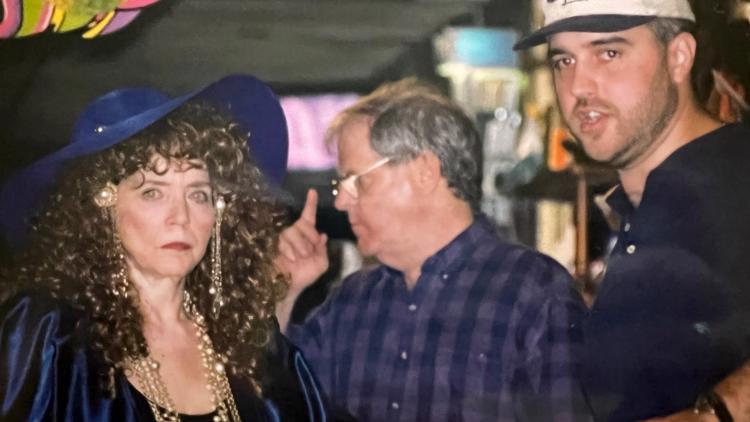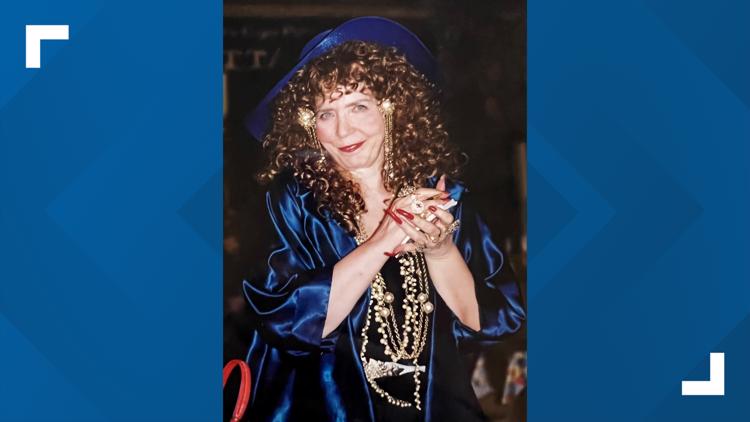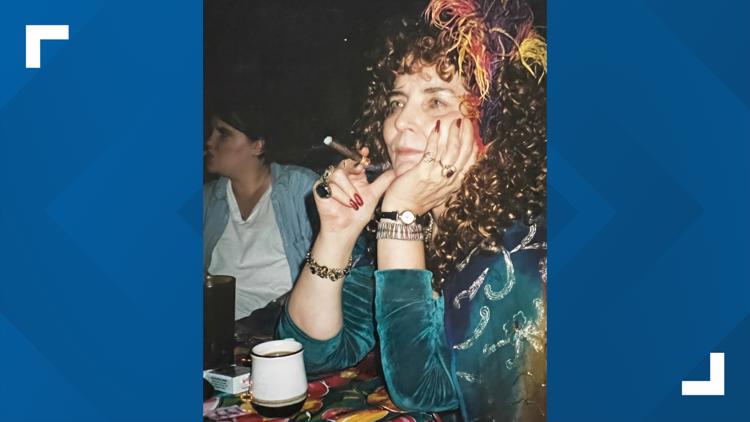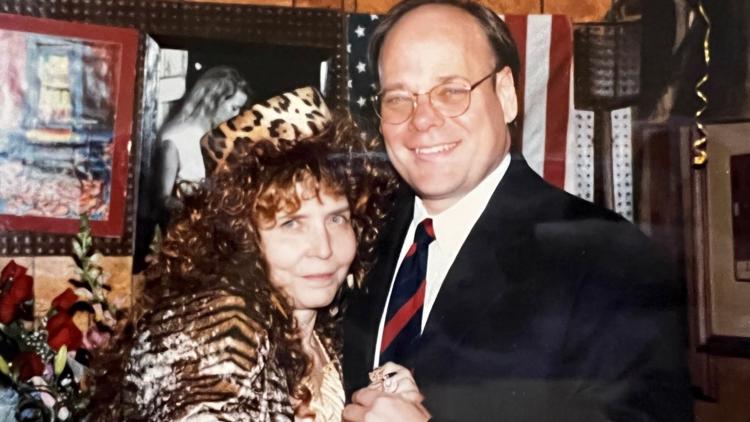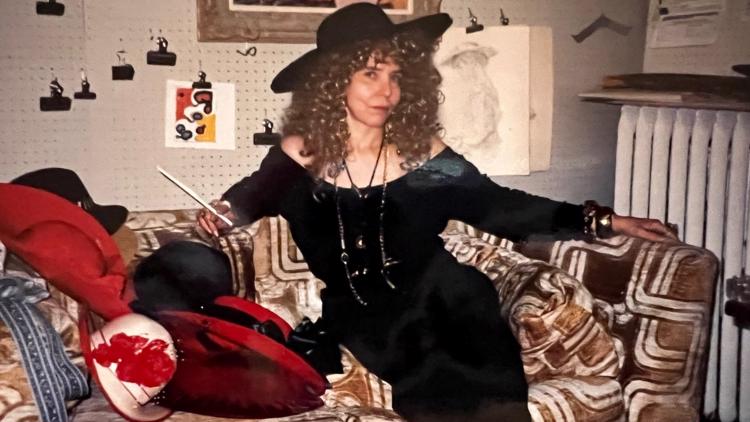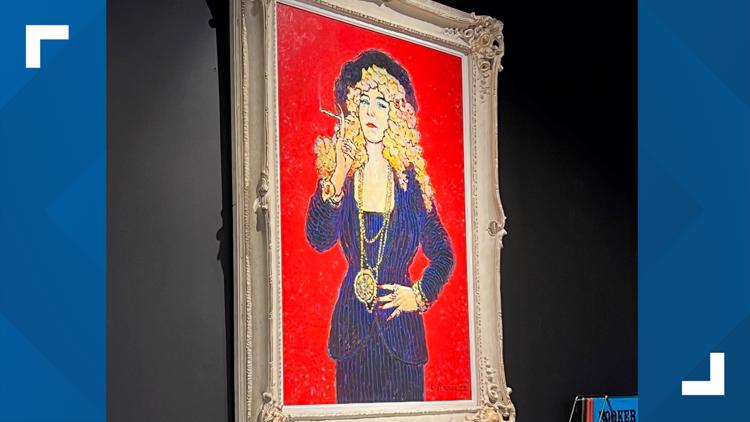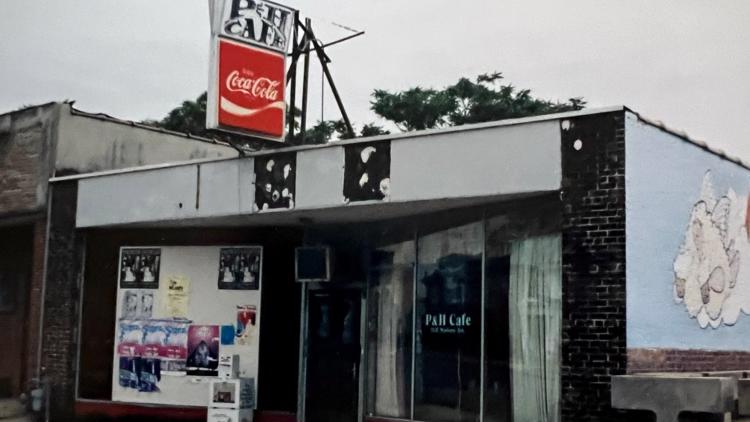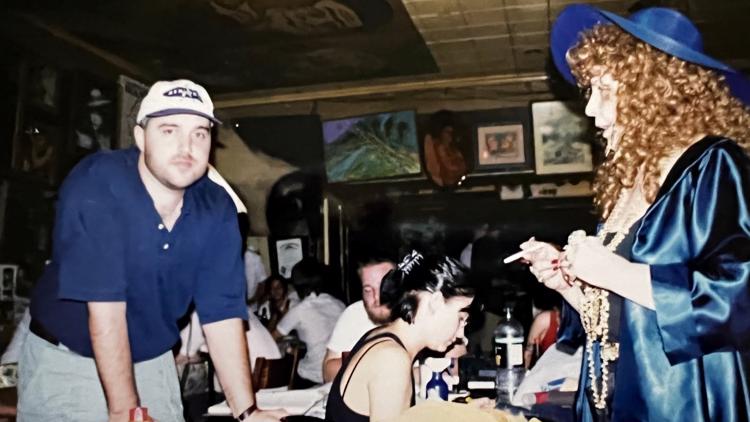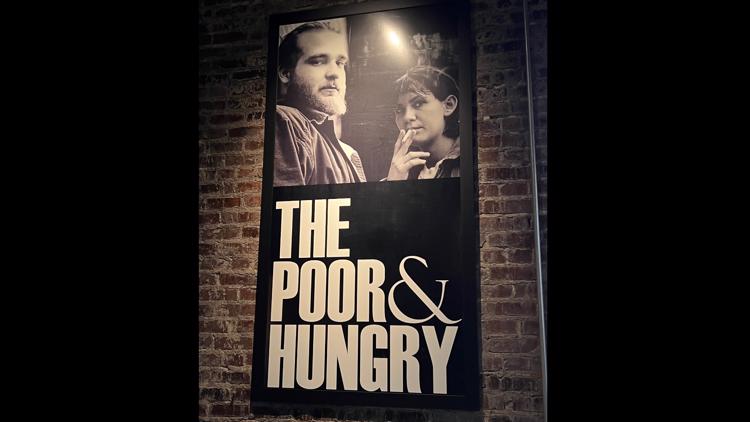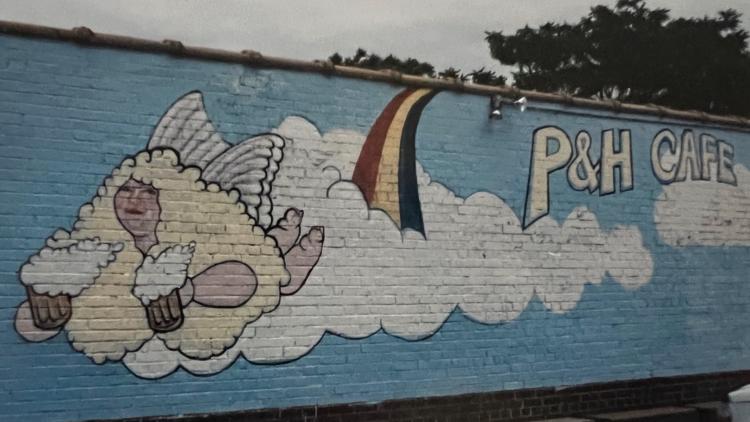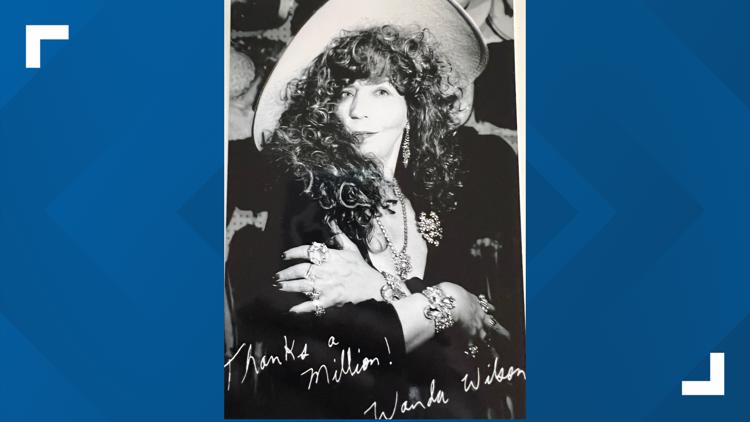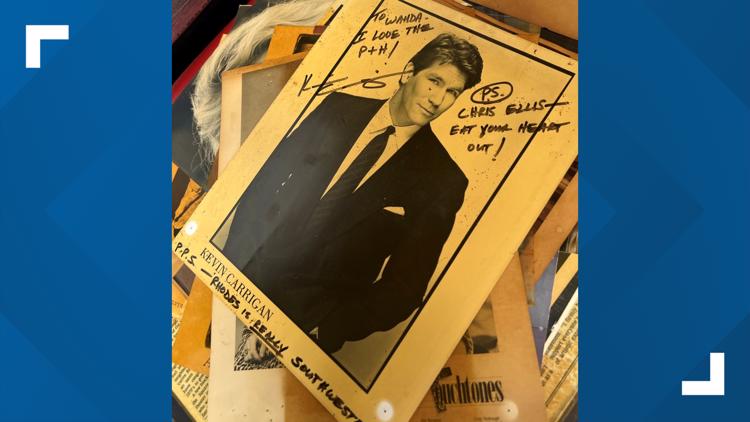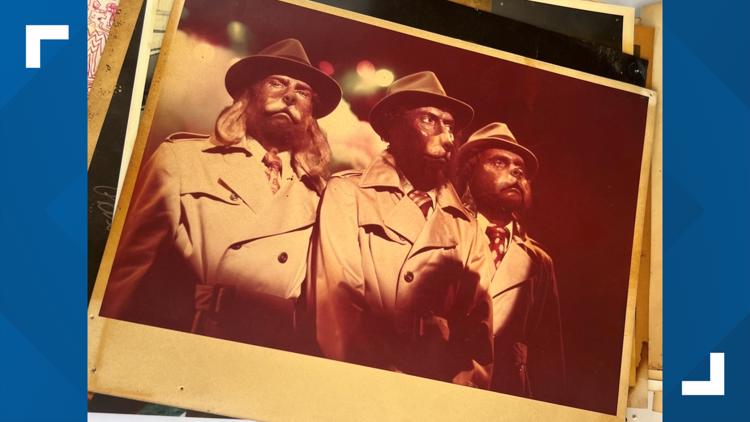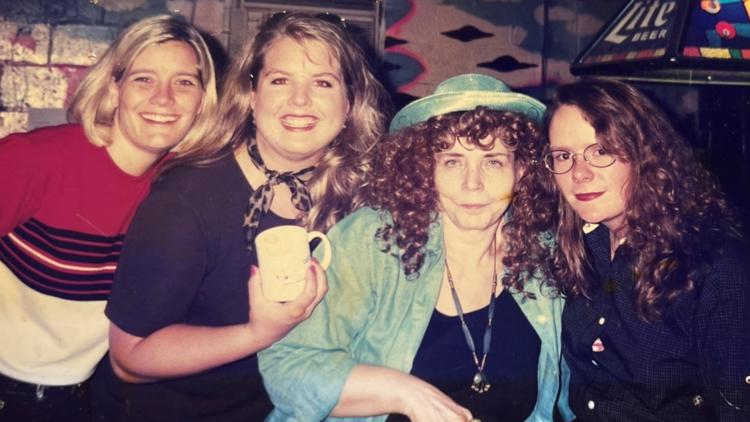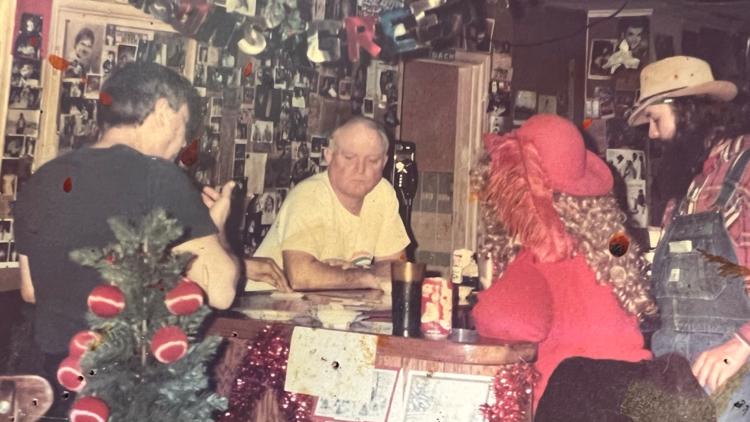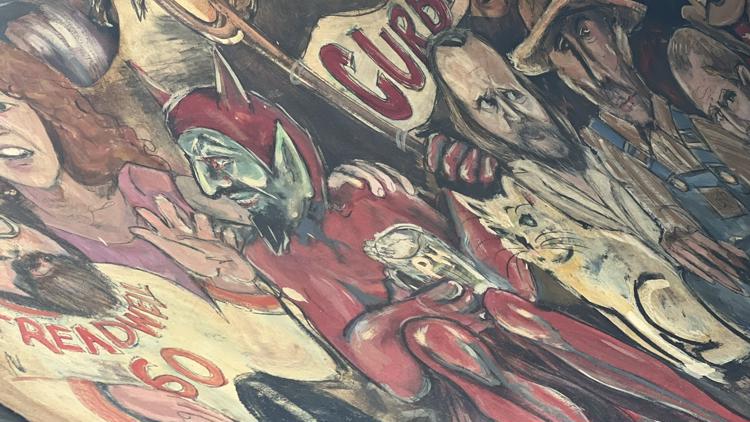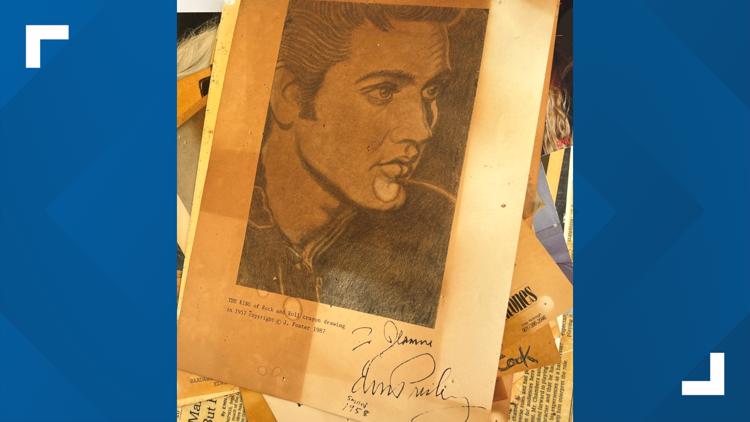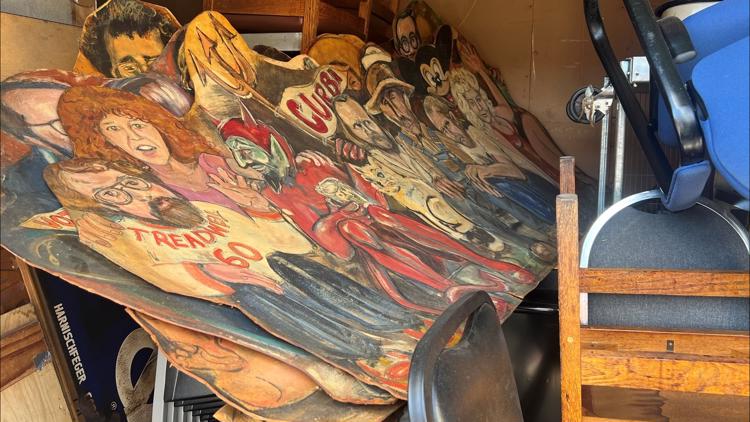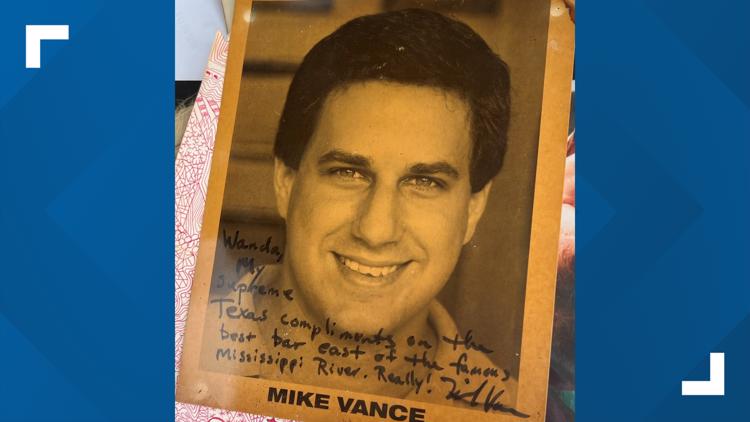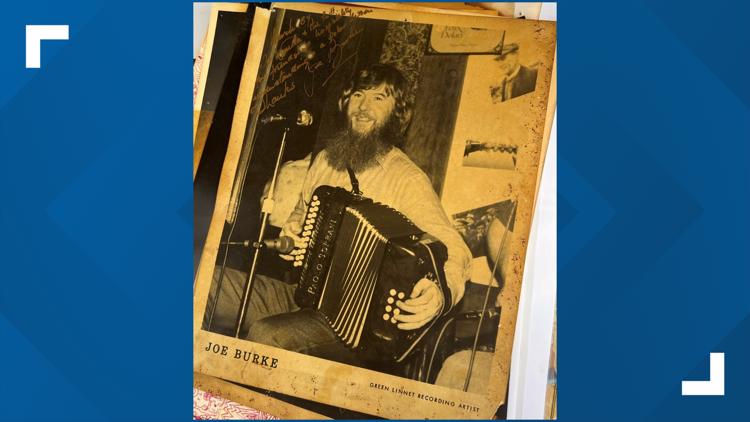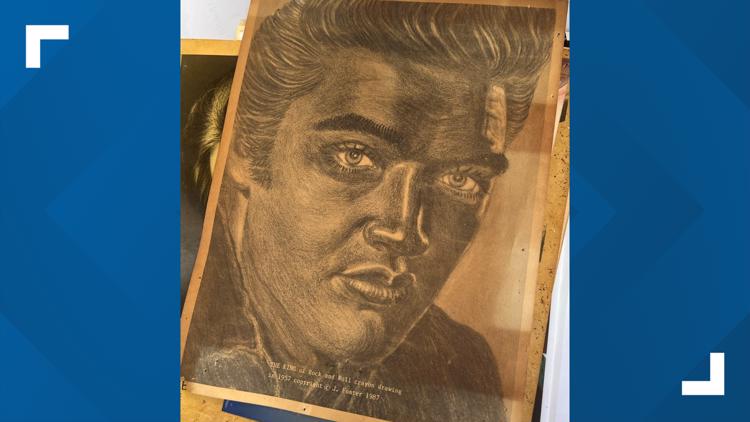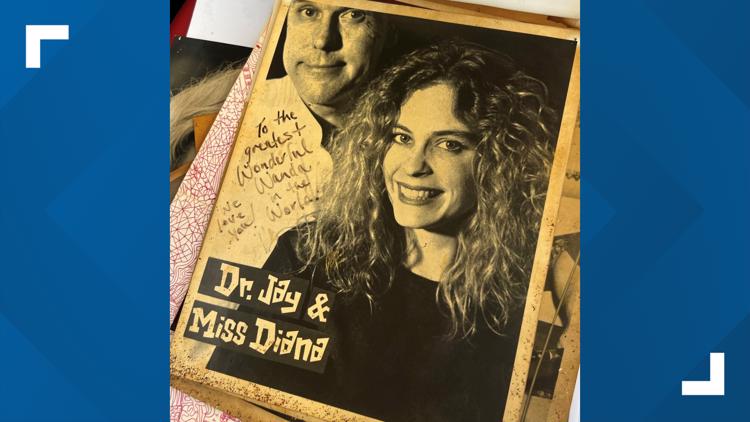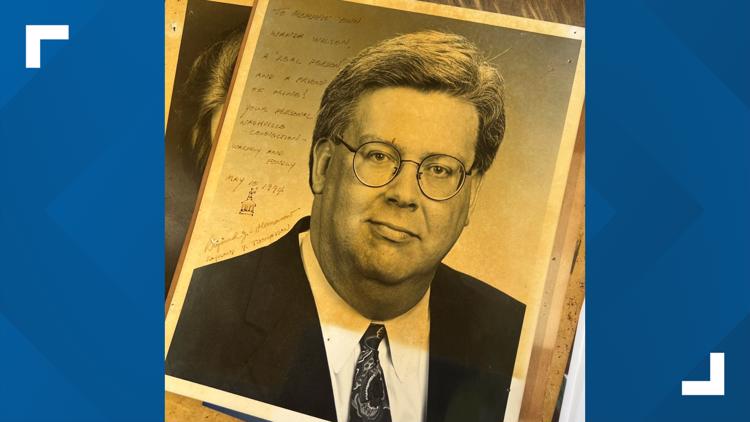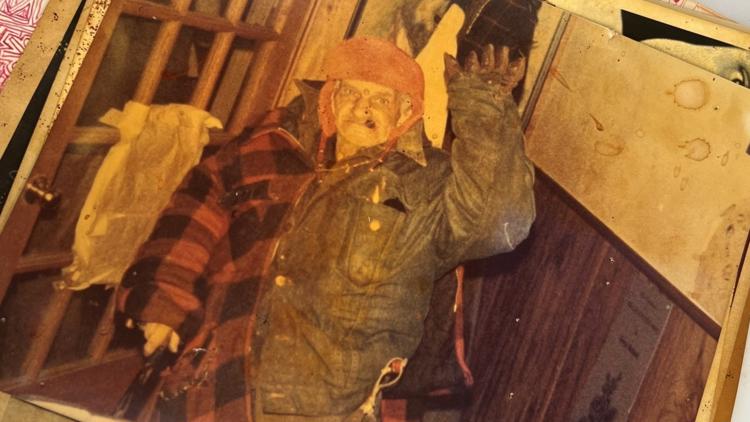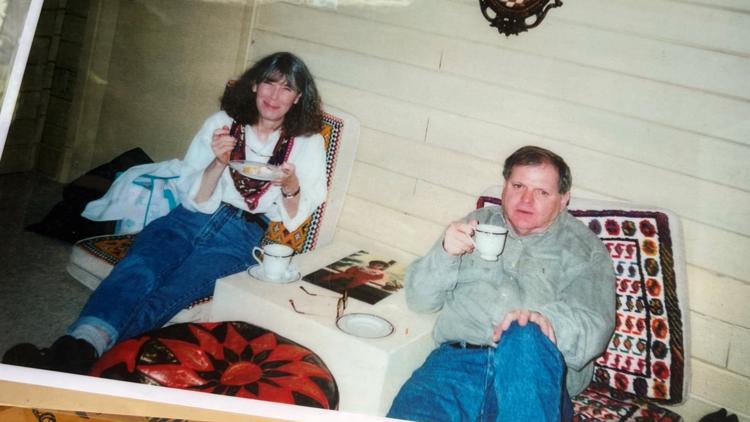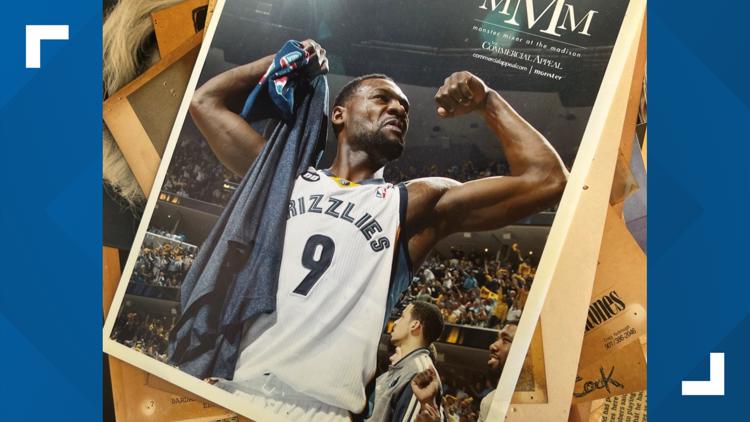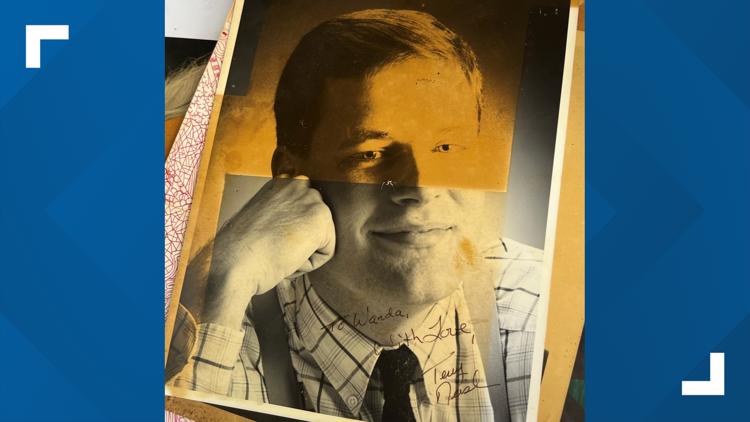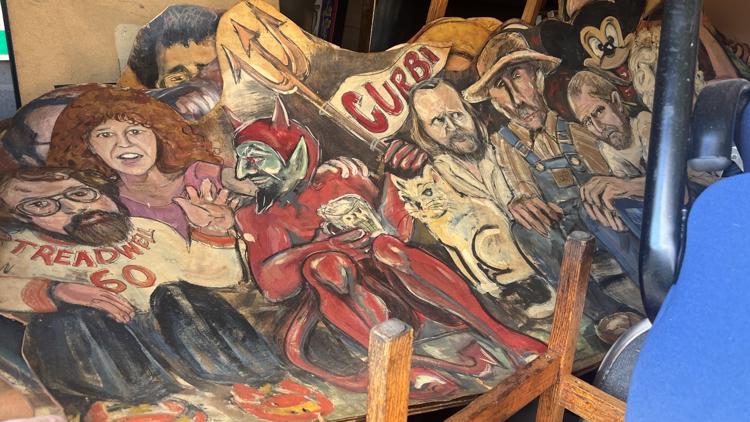The P&H Café, a beloved Memphis dive bar, shut down during the pandemic | Why it was important and how it could come back
"Black, White, poor, rich, gay, straight, they all came to the P&H, and it all worked. I mean, everybody felt at home,” said bar's former grand dame Wanda Wilson.
Craig Brewer
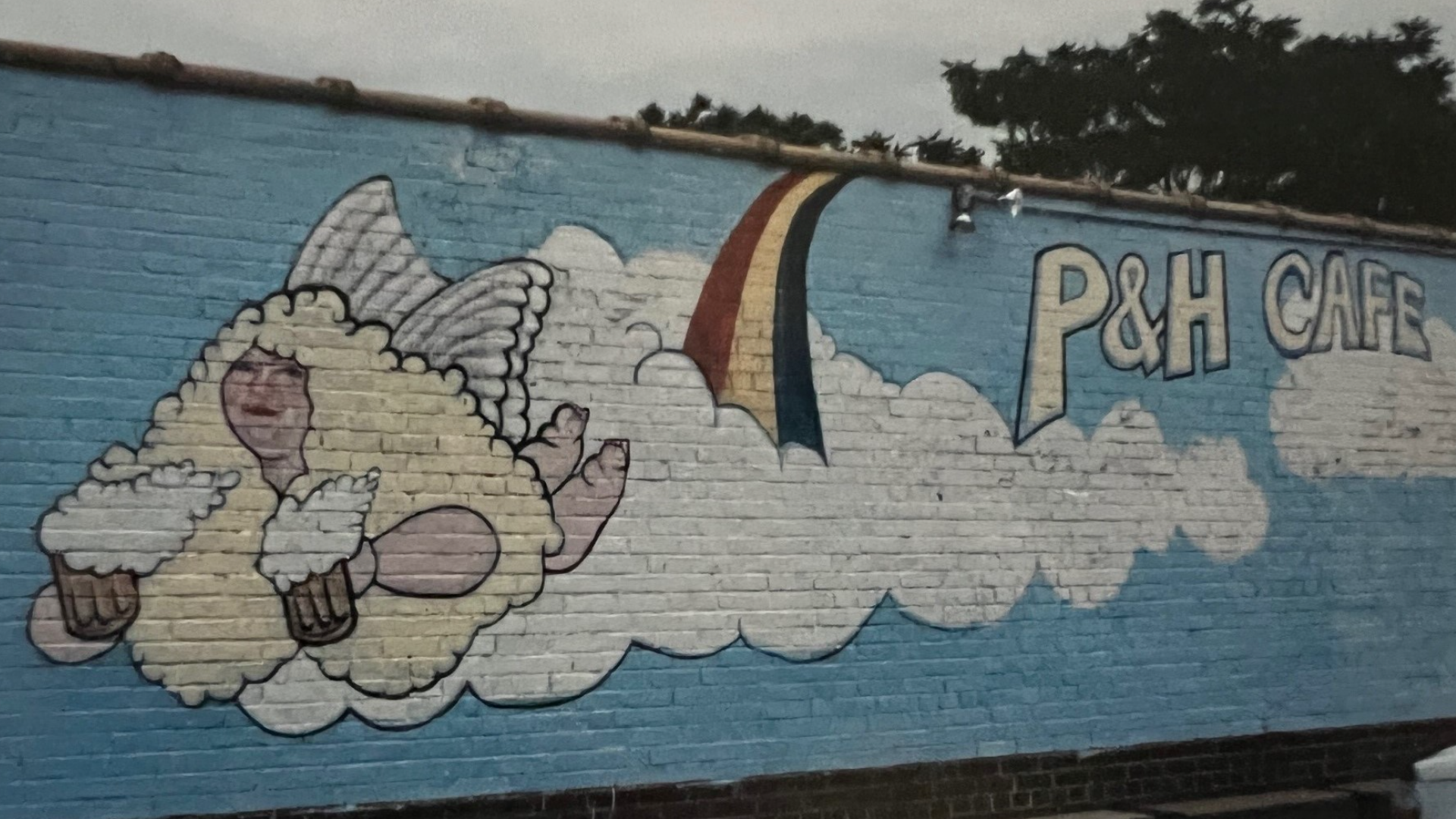
Through the front doors of P&H on Madison Avenue in midtown Memphis, you walk into a smoky haze. Music is playing, or maybe someone is belting out Patsy Cline’s ‘Crazy’ on a karaoke mic, or the laughter fills the room as comedians begin a show. Sit down. Order a drink. Look around at the weird, amazing, and captivating artwork– caricatures, photos, or graffiti on the wall. Before you leave, you’ve made new friends, know they’ll remember you when you return, and have learned a piece of Memphis history you can’t get by touring Graceland.
“It's the clientele that’s the bar. It’s not the owner. It’s the people that come in, the people who show you respect, pay their tabs, that actually allow you to keep going,” said Matt Edwards, former co-owner of P&H Café.
'Anybody from any walk of life'
For those new to Memphis, or maybe too young to have ever ventured inside, the P&H Café was a midtown staple for decades. A dive bar where everybody knew your name. Before the term ‘safe space’ took on political connotations, that's what P&H was to anyone who walked in, whether it was their first or 1,000th time through the doors.
“The thing that I liked about the P&H - anybody from any walk of life, it made no difference — Black, White, poor, rich, gay, straight — they all came to the P&H, and it all worked. Everybody felt at home,” said Wanda Wilson in an early interview. She ran the bar from the mid-'70s through the '90s.
The bar first opened in 1961 on Madison Ave. near Overton Square in Midtown Memphis, but moved further west on Madison to its most well-known location in the '80s.
Edwards said P&H was originally short for "Pearl and Harrison," parents of Nancy Heaton, who worked there most of her life and would own the bar for a number of years herself. It was Wanda who changed the letters to mean "Poor & Hungry." Health issues led Wilson to sell the bar to Heaton in 1999, and she and her husband Bob ran it until he sold it to Edwards and Robert Fortner in 2011 after Nancy Heaton passed. (*Source: Memphis Magazine January 2015)
For years, the P&H Café blended in with the small, single-story, commercial buildings in a largely residential neighborhood in Midtown. As time went on and newer construction, including Minglewood Hall, started to fill Madison Ave., P&H began to look like a well-worn antique. To the regulars it remained a place where you could walk in, have a beer and a grilled cheese, find a good conversation, or just people watch.
'The Beer Joint of Your Dreams' and the woman in charge
When those same regulars speak nostalgically about P&H, Wanda Wilson quickly becomes the focus. They speak with vivid memories of her loud outfits, big wigs, biting wit, and larger-than-life southern charm.
“I don’t know why I dressed up the very first time," Wilson said in that early interview. "It went from being okay to being so extreme with me that I had to come up with a different something to wear every night of my life. And mostly I did. Just because of my outrageous dress. Shoot, I can give every drag queen in three states a run for their money I think."
One of those regulars was Craig Brewer, who directed films such as Hustle and Flow and Coming 2 America. Long before the critical and commercial success of those films, Brewer wrote, produced and directed his debut film, The Poor & Hungry.
Brewer relished the memory of his first time there, when his cousin took him to see a band called The Delta Queens who were opening for Mud Boy and the Neutrons with Jim Dickinson.
“My first night in the P&H I got introduced to Wanda," said Brewer. "I just immediately fell in love with Wanda. She's this force that you see and experience, and you just want to know everything about her."
Brewer said he immediately knew that this was a woman to know.
“She had this like gravelly voice but she was also ultra-feminine with big, big wig hair, and the jewels and then the hat, and I kind of couldn't get enough of her," he said.
While he went for the music originally, it was Wanda that drew Brewer back.
“I got to experience the Delta Queens. I got to see Jim Dickinson play and see what his whole vibe was about. But it all just paled in comparison to meeting Wanda,” he said.
It's an experience that would replay many times for others.
“I would have lots of people come in that I hadn’t seen in a while, and they would bring other people, and sometimes we’d be here until 4 or 5 o’clock in the morning. But everybody comes by the P&H sooner or later,” said Wilson in her interview with Brewer.
It was while talking with Wanda as Brewer was working on his screenplay for his first film that she inadvertently gave him the perfect title.
“I'll never forget this moment where I was looking up at the wall, and there was a sign that said P&H. And I said Wanda, 'What, what is that about? What does P&H stand for?' I'd been going there for at least two years and I'd never asked," said Brewer.
Her response gave him the name.
"(She said) 'Well, you know, there's been a lot of stories about, like, it should be this and it should be that, but as whenever I had the bar it was always referred to as the Poor and Hungry.’ And I was like, ‘Poor and Hungry. That's what P and H stands for?’ And she goes 'Yes.' And I just turned to my computer laptop and named my movie at that moment," said Brewer.
From the beginning, Brewer said both Wanda and Nancy supported his dreams of becoming a screenwriter, with small gestures that meant the world to him at the time.
“She was incredibly nurturing. There was always this feeling that everybody was 'darlin',” said Brewer of Wanda. “She asked me what I wanted to do and be and I told her I'm writing movies."
Brewer told Wanda he wanted to feature her sometime.
"I said, ‘I would love to do something with you and put you in a movie.’ And she was like, 'Well, you know, darlin, I've been in Interview. I've been in these Walking Tall sequels.' And she had, and she showed me grainy pictures of somebody taking a photo of the screen of a small-like television that was playing at probably midnight or something like that. But I just thought that her personality was something that needed to be recorded as is. I wanted her to be Wanda in whatever I was doing," he said.
In his early days before his hit film Hustle & Flow when he didn’t have a lot of money, Brewer said Nancy would also make sure he stayed fed, in more ways than one.
“Nancy, bless her heart, she knew I didn’t have money. She knew that I only had a couple bucks every day for iced tea... And she would come over with the daily special, and she’d be like, ‘Did you order the spaghetti?’ And I’d go, ‘Oh no ma’am, I didn’t.’ And she goes, ‘Ok, I think we got an extra order, do you want it?’" said Brewer.
"And I knew what she was doing. And I just loved that. That’s something I’m glad I got to experience - that kind of kindness from somebody. And it really did feed me - but also fed my soul and kept me going," he said.
Wanda Wilson passed in 2015, and a large memorial was held in midtown, where the regulars gathered one more time to honor her larger-than-life spirit.
In Pictures: The P&H Café in midtown Memphis over the years
A new millennium
In the late '90s, when Nancy and Bob Heaton owned the P&H, Matt Edwards started going there to hang out, and he would eventually start working there.
“That was when I was 21-22 and I had been looking for places to throw darts. Somebody mentioned the P&H had a dart crowd that came in on a certain night. And they had a dart tournament on another night. So, I was like, ‘Oh, I'll check it out. It's not far away.’ But it was easy going,” said Edwards.
Over the years, the kindness of the Heatons was something he’d remember – letting him and his friends run up tabs until pay day. It was something he said he also tried to pay forward when he bought the P&H in 2011.
“Friends of mine - you can see obviously they're going through some [stuff], I’d be like, ‘hey, you can work here, work with me,’” said Edwards.
Edwards and Fortner bought the bar after Nancy Heaton passed away. Edwards said it took five years to agree on terms with her husband.
And with the new times came a few changes. Edwards said when they took over, everything was handwritten in ledgers, so they moved it to computers.
Once Edwards and Robert Fortner took over, they brought in more music, and there was less art and theater, though they still were doing art shows. They also brought in more karaoke and comedy nights.
But the bar was still a welcome spot for everyone.
“It was a melting pot. Lawyers would come in during the day because they're getting old, and they've got to get up early in the morning so they wouldn't stay out. And then architects, designers, etc.,” said Edwards.
After Wanda passed, Brewer said he stopped going to P&H as often, but found he was excited when he returned.
“I started to hear about You Look Like and so You Look Like became so exciting,” said Brewer, who served as an Executive Producer for a series based on the Memphis comedy show. “I have to say on those nights with You Look Like, Katrina [Coleman] kind of became the new Wanda, and I say that with the utmost respect and awe of Katrina, because she was a kind of mother to all these comedians. She could bring them all together and she created a space where, it was such a wonderful combination of feeling safe to be yourself and at the same time being made fun of for it and making fun of others for it.”
Brewer said on those nights, more than a decade after he first walked into the P&H, he found himself falling in love with the place all over again.
"This place never stops inspiring people or nurturing people — and now a whole new young generation. None of them knew Wanda. Wanda was this photo or painting on the wall. So she was present but she wasn't there. To me, it was both sad but also special because there was obviously something in the bricks here that is continuing to usher in the new set of creatives.”
The end of an era
Even before the pandemic, signs of change had begun along the Madison corridor of midtown. New developments were going up on nearly all sides of the building, which Edwards said could have been good – and bad.
“You could have flipped the coin on how that would have affected the business. It could have been a blessing. You never know,” he said.
One issue Edwards ran into was parking. Their parking lot only fit a handful of cars, but on a Friday night or whenever there was a popular band playing on their stage, there might be over 100 people crammed into the building. Which could be frustrating for the residential community that competed for street parking on Madison.
Edwards considered trying to buy the building outright, but he ended up getting a letter letting him know the building had been sold, and rent was going up. The building sold in June 2020, a few months into the pandemic, for $225,000, according to the Shelby County Property Accessor’s website.
Edwards said he and Fortner tried to find ways to keep it going. At first, he didn’t want to take a grant, because he said they didn’t need it at that moment. He said he didn’t want to take advantage of it when there were others who would need it more.
He said that when he finally did apply for funding, he thought he was approved for a grant, not what ended up being an SBA loan. He said in the end, he was thousands of dollars in debt.
"Nothing went as planned," he said.
In the end, the P&H Café would not be able to survive the changes brought about during the pandemic.
Edwards started an online fundraiser to move the P&H to another location. Instead of a new location, the contents of the building were moved into a storage unit.
“I still feel bad about that because that money - it got used for P&H - unfortunately, we moved into storage," said Edwards.
During the final move out, Edwards said he tried to stay open as long as he could to allow workers to continue making money, but once they closed, everything moved quickly into storage with the help of friends.
“I hate it. Because these people who gave that money expected something else. The money did get used for the business. It wasn't used frivolously. But I hate it,” said Edwards.
Now he’s leaving behind this advice for other small businesses owners.
“You don’t know what’s going to happen. You need to have a backup plan. You need to have savings. To attempt to cover what might come about,” he said.
Pictures from storage from the P&H Cafe in Midtown Memphis
Could there be a comeback?
Edwards said he’s hopeful the P&H will return some day at a new location.
“I run over it but I'm about to have to start selling the [stuff] that’s in storage. That's an overhead I can't continue. So, if and when it would happen, [there] would have to be backers,” he said.
He said he’s open to others who would want to continue the bar, especially if it was a community effort by those who remember the history and focus of the original spot.
Craig Brewer has his own thoughts on whether the P&H Café should reopen.
“That's really the question, isn't it? " said Brewer. "The immediate response is — you want to say yes. You want to say, 'well yeah, we need that'. But if I were to be honest with myself, I think that the older I get the more I realized that some things have their moment. They are that firework. They are that sun or supernova, and they started, and they expanded, and they blew up and they were their brightest and then they do have their time to die."
“That is not me being negative and saying that if Matt and Robert found a place and they wanted to put all the stuff that they kept in storage and move it in there and call it the P&H Café that I wouldn't be the first one of the doors - of course I would," he continued. "But I don't know if that spirit so easily moves, especially from the people that I know that grew up in the P &H Café. I don't know if it would mean the same or feel the same way, but maybe, I'm hopefully wrong on that.”
Brewer said he's had other ideas in the past.
“Personally, I wish there was a reboot on it. I have dreamed about opening up a bar, just calling it 'Wanda's' and filling it with Wanda photos and people who dress up like Wanda and all that kind. Everywhere people go - you want to go to Wanda's beer joint. But even then, I don't know. I don't know if that would work with people. I'm still so nostalgic and homesick for what the P&H was that I wish I could have it back. But I also need to come to terms with the fact that it may not," he said.
And while P&H may be a part of history, Brewer said other places are trying to create those same welcoming spaces.
“Obviously places like the new Hi Tone, Black Lodge video. There's all of these places, and venues that are still opening the doors up to artists and musicians and creative producers that just want to do something interesting,” said Brewer. “But I would argue that it really is around a personality and a place. I don't know if it could just be a place or a venue. So Wanda Wilson was kind of that early era.”
If the P&H ever returns, it won't be at that location at 1532 Madison. That's now CRU Lounge.
In 2022, Craig Brewer has been hosting 'Secret Screenings' at Crosstown Theater. To keep up with events being held there and for future happenings, go to https://crosstownarts.org/calendar/category/crosstown-theater/.

